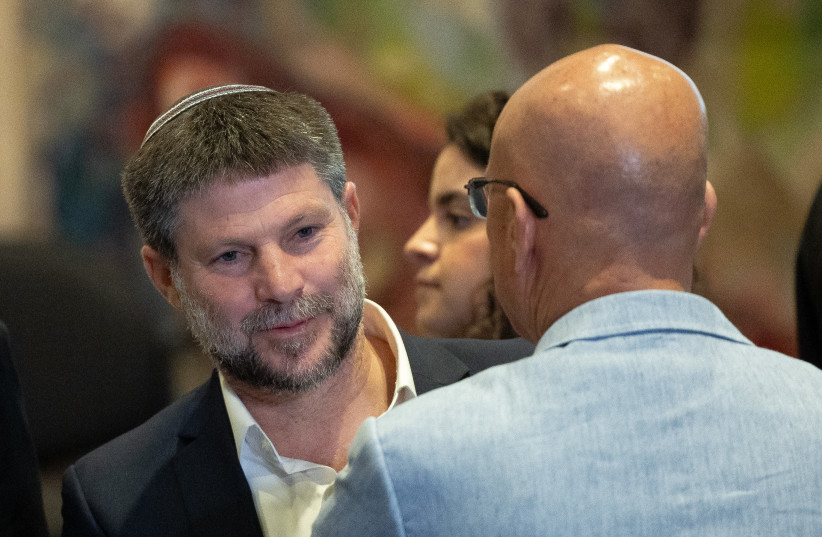Releasing Israeli hostages being held by Hamas remains Israel’s first priority, and the fact that Israel began to operate in Rafah has not changed this, Minister-without-Portfolio MK Benny Gantz said in a video statement on Tuesday evening.
In an apparent attempt to distance himself from claims that political considerations were a factor in the hostage negotiations, Gantz said that he would “never despair” and that “political considerations will never be a factor in this holy topic.”
Gantz’s statement came less than an hour after a video statement by Prime Minister Benjamin Netanyahu was released.
Some of Gantz’s comments were intended to differentiate himself from the prime minister’s.
Reports earlier on Tuesday indicated that the Israeli negotiating team sent to Cairo did not have the authority to make any new concessions.
Netanyahu said that he had instructed the negotiators to “continue to insist on the necessary conditions for the release of our hostages” and “strongly insist on the demands that are essential for ensuring the security of Israel.”

Gantz, however, added that the team “not only has the mandate to listen – but the duty to turn over every stone” in order to strike a deal.
Gantz also addressed the issue of the tens of thousands of evacuees from Israel’s northern front, which Netanyahu did not mention.
“Your return home safely prior to the start of the school year is on the table and remains there as long as I am part of the government,” Gantz said.
He was likely hinting at an unconfirmed report earlier on Tuesday that the prime minister was not committed to having the evacuees return home by September 1. It also came after the director of the Rebirth Directorate, responsible for the rehabilitation of the Gaza border communities, said on Tuesday that it may take two to three years before some of the communities could return home.
Earlier on Tuesday, Finance Minister Bezalel Smotrich said in a written statement that sending the negotiation team to Cairo was a “mistake” and a “fall into a manipulative trap” set by Hamas, Qatar, and Egypt.
“This is the time to press harder and harder on [Hamas leader Yahya] Sinwar’s and Hamas’s throats until they are destroyed. To speak only with fire. We cannot surrender to international pressure, and cannot stop until victory and vanquishing the enemy” are achieved, Smotrich wrote.
“This is our war of independence and we must win,” he added.
“In order for this to happen and for us to disconnect Hamas’s oxygen valves, we must act today according to three steps that will bring quiet back to residents of the South,” Smotrich continued.
According to him, the first was a “complete conquering of the Rafah city and region”; the second was the destruction of “all of the underground [tunnels] in Rafah and its surroundings”; and the third was “complete control” over the Rafah Border Crossing and the Gaza-Egypt border road, otherwise known as the Philadelphi Corridor.
“Immediately afterward, we can continue to Deir-al-Balah and Nuseirat, the [refugee] camps in the center [of the Gaza Strip], and complete the dismantling of the Hamas battalions that remain there,” Smotrich concluded.
Smotrich's threats to leave the government
The finance minister threatened in recent weeks that a decision to cancel an invasion of Rafah as part of a hostage deal would lead to him leaving the government along with his seven members of the Knesset. However, two opposition parties – Yesh Atid and Ra’am – said on Monday that they would provide the necessary votes in order to push forward with a deal.
A minister from the Likud reasoned in a conversation with The Jerusalem Post on Monday that even if Smotrich decided to leave the government, the chances that he would also support a bill to disperse the Knesset and bring down the government were low, as Smotrich is polling below the electoral threshold, and bringing down a right wing government may make him even more unpopular.
